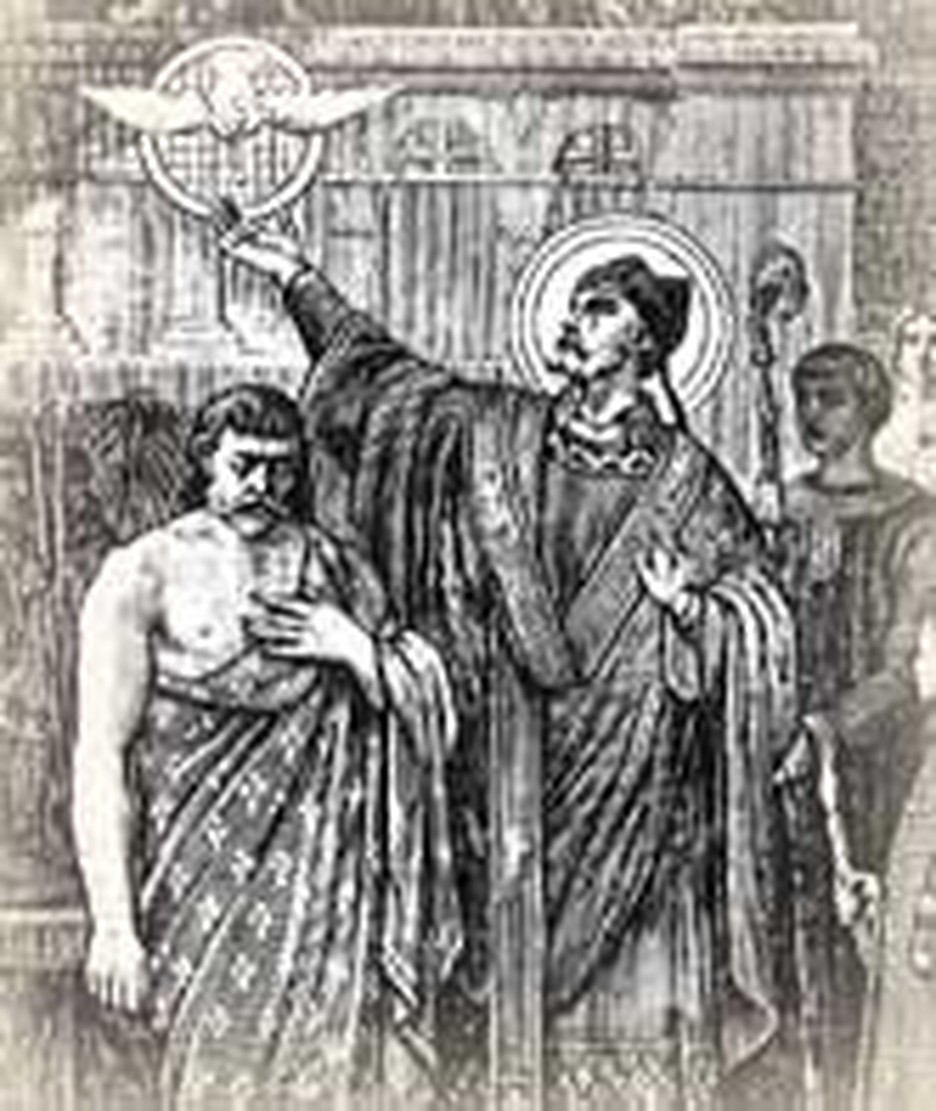
The gods were failing king Clovis and his Franks. A contingent of Germans was about to defeat them. In desperation, the king raised his hands in the air, praying: "Jesus, if you really are the Son of God as my wife tells me, grant me victory and I will believe in you." At that moment the enemy broke ranks and fled. Clovis attributed the victory to the Christian God.
That day in 496 would be a dramatic turning point for Gaul (France). Although Clovis had married a Christian woman, his knowledge of Christianity was slender. Essentially he knew only what Clotilda, his wife, had told him--a potpourri of facts, fables and doubtful legends. He was a violent and vindictive man.
Up until his miraculous victory, Clovis felt that he had good reason to doubt the God of the Christians. Had not the Roman Empire converted to the new faith more than a hundred years earlier? And yet God had not protected it from the barbarians. Closer to home, after he had allowed Clotilda to baptize their first-born son, the boy died within eight days. What kind of God was this who allowed those baptized into his name to die? For her part, Clotilda bravely rejoiced that she had been considered worthy to bear a child who was now transported to the kingdom of heaven.
Despite his suspicion of baptism, Clovis permitted Clotilda to have their second son baptized. This boy also sickened. Again Clovis was angry. But this time the boy was spared in answer to prayer. And then came the battle that forced him to make his desperate appeal to Christ.
Clovis was as good as his word. He invited Bishop Remigius to instruct him in the new faith. On this night, December 25, 496, he was baptized in Rheims. In celebration of the event, Remigius decked the cathedral with lovely carpets and hangings. Hundreds of candles lighted the building in contrast to the dark December evening. A breath of incense hung like enchantment in the air. Hearing the solemn chanting of psalms, the king turned with awe to Remigius, asking if he had entered the promised kingdom of heaven. "No," answered the bishop; "but it is the beginning of the way to it."
3,000 of Clovis's Frankish warriors followed him in baptism. Remigius continued to instruct the warrior king in the faith. His understanding of what he heard must have lacked something, however. When Remigius described the abuse and death of Christ, the king started up angrily, exclaiming, "If I had been there with my Franks, I would have avenged His wrongs!"
Clovis was one of the first of the line of French kings known as Merovingians.
Bibliography:
- "Clovis." The Oxford Dictionary of the Christian Church. Edited by F. L. Cross and E. A. Livingstone. Oxford, 1997.
- Kurth, Godefroid. "Clovis." The Catholic Encyclopedia. New York: Robert Appleton, 1914.
- Various encyclopedia and internet articles and paragraphs in histories of Christianity.
Last updated May, 2007.


